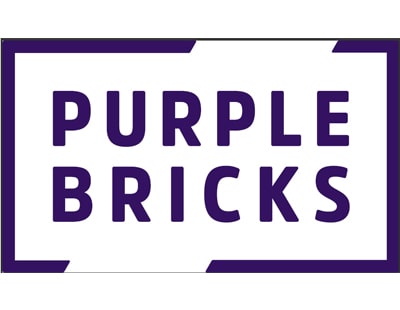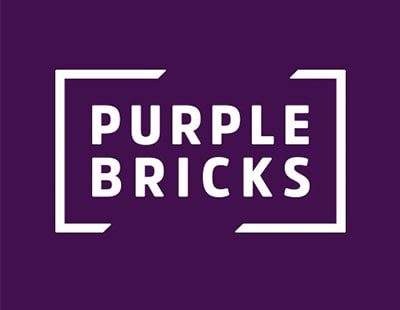Hidden amongst the annual results released by Purplebricks on Tuesday – which saw revenue and profits down, as well as a scathing assessment from current CEO Helena Marston about the present state of the brand – was a total writedown of its £9.2 million investment in Homeday, a German hybrid agency.
Lesser known than its other (ultimately ill-fated) expansions into Canada, the US and Australia, the expansion into Germany was announced back in October 2018.
At the time, Sky News reported that Purplebricks would be entering a 50-50 partnership with German media giant Axel Springer – the company’s majority shareholder - to form NewCo, a joint venture company.
As reported in EAT in October 2018, NewCo spent €25 million on buying a 26% stake in Homeday, a German digital estate agency which at the time had a 50% share of Germany’s online estate agency market.
Since then, Purplebricks has invested more money in its Berlin-based counterpart, which followed a similar model of low fees and local property experts that was the Purplebricks hallmark until recently.
But now it has decided to step back from the German operation. In the latest set of annual results, which included a detailed 34-page report on the company’s current condition, there was a section dedicated to investment in Homeday.
“During the year, the Group recognised gains on step- down of our shareholding of £1.0m, relating to our joint venture partner's further investments in Homeday which we chose not to match. These gains partly offset our share of Homeday losses for FY22 of £3.3m. Overall our share of loss from associate was £2.3m (FY21: £1.0m, being £3.0m share of losses offset by £2.0m step-down gains),” it said.
“The Group's investment in Homeday has been impaired in full at 30 April 2022, resulting in a charge of £9.2m at the Group level. This reflects continued losses following a significant slowdown in the German residential property market, in excess of those which had been forecast earlier in FY22, and a reassessment of the discount rate applied to Homeday's projected future cash flows in line with a more challenging macro-economic outlook.”
It added: “No further investment in Homeday was made during the year and no further investment is currently anticipated.”
Purplebricks overseas
Since being founded in 2012, Purplebricks hasn't been shy when it comes to expanding its operations overseas. It was something the founding Bruce brothers were particulary keen on. But the ventures have not gone especially well.
USA
Purplebricks launched its hybrid business model in Los Angeles in September 2017 and celebrated its one year anniversary by entering the Florida property market. But under a year later it had quit the US market altogether after its losses almost doubled and it admitted it had expanded too quickly.
Canada
Following the acquisition of local hybrid agency DuProprio in July 2018 for £29.3 million, Purplebricks launched in Canada in January 2019, albeit with directly-employed agents - which at the time wasn't the company's MO. However, in July 2020, the UK-based Purplebricks Group sold its Canada operation for some £35 million, in an attempt to strengthen UK activities. In January this year, the Purplebricks Canada name disappeared completely, rebranded as FairSquare Group Realty. The Purplebricks name, logo and colour scheme were all eradicated.
Australia
In September 2016, Purplebricks launched Down Under with a $4,500 fixed-fee offering in Melbourne and Brisbane. It soon expanded into the other Australian states. However, in May 2019, it was announced - on the same day that it was revealed Michael Bruce would be leaving the business - that Purplebricks' Australian operations would be shutting for good. The firm again admitted that its rate of geographic expansion was too rapid. It was later described by an Australian housing expert as 'cheap and nasty'.
-
It's not yet clear whether Purplebricks has withdrawn from the Axel Springer joint venture completely, but all the signs point to the German expansion being the latest to fall by the wayside for the ailing brand.












.png)


.png)




Join the conversation
Jump to latest comment and add your reply
Attempting to scale a model globally that is flawed, unsurprisingly just means you burn cash outside the the UK as well as inside the UK. Purplebricks is not unique in writing down (writing off) investments in online agencies - some pretty big players have had their fingers burnt and decided not to continue throwing cash at these operations.
In simple terms COA, of the vendor client or landlord client, relies on an advertising budget far in excess of that used by any traditional agency, the only people getting rich her are marketing executives, google and media brands, they love the revenue pouring in to them - that keeps the Purplebricks brand front of mind. The moment the advertising stops - so does the brand, unlike a branch front sitting on a high street.
What Purplebricks were clever at was convincing the public that they were not charging commission like the 'derided' estate agents - getting on the side of the public. The joke of course being that the LPE were getting instant commission on each listing, and the public were being charged a fee even if they failed to sell or let, a brilliant piece of manipulation.
So on the one hand Purplebricks were saying use us we hate agents too (even though they were an agent) and in fact their business model meant they received cash on every instruction.
On a personal level I think all agents should charge an upfront marketing fee for the work they do, prior to sale. If all agents did this they could offset the costs, rather than relying on the completed transactions to cover the costs of the properties they failed to sell or let.
Totally agree with Andrew's last paragraph. Who wouldn't like some money upfront. The trouble is, agents being agents will compete to the bottom, virtually eradicating the fee!
Please login to comment